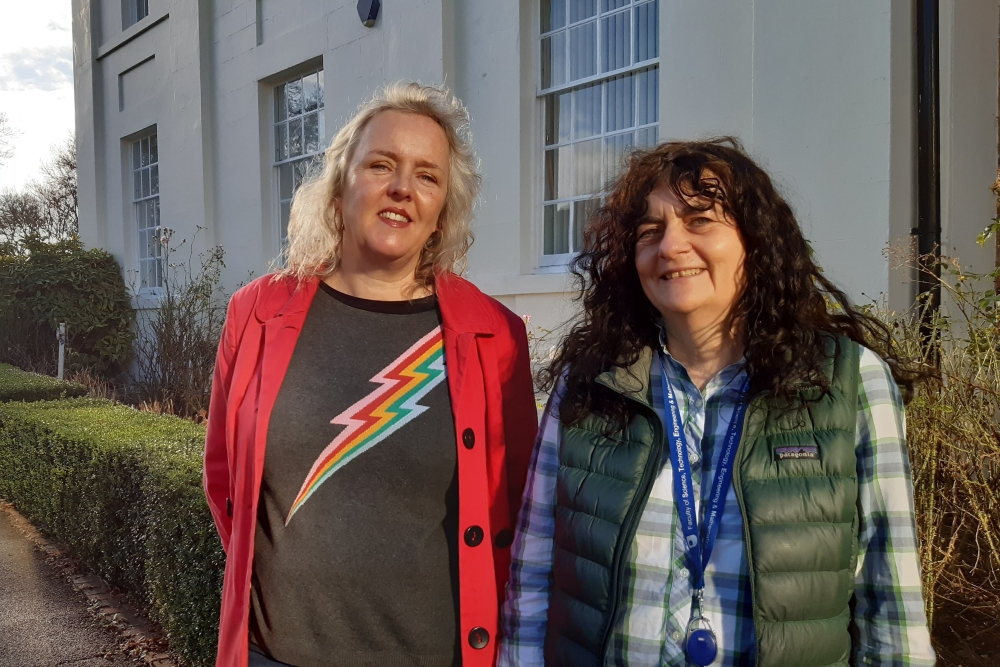OU News
News from The Open University
- Home
- Academic’s quest to help people with facial-recognition blindness
Academic’s quest to help people with facial-recognition blindness
Posted on • Arts and social sciences, Psychology

A professor of psychology from The Open University is embarking on a quest to raise awareness of a little-known human condition that affects between 2-3 per cent of the population – facial-recognition blindness.
Many people unknowingly live with the condition, also known as prosopagnosia, and shrug off the fact they can’t recognise their partner or children by face alone, but use other cues such as the clothes they are wearing.
Yet Professor Catriona Havard, author of a book called ‘When face recognition goes wrong’, is at the beginning of a project that aims to spread awareness and to provide free tools that parents and educational professionals can access to support children in schools.
Free-to-access support
The eventual aim is for them to be free to access on the OU’s OpenLearn educational platform.
She also wants to develop a screening tool, so that people like Dr Hayley Ryder, a Senior Lecturer and Staff Tutor in mathematics who also works at the OU, can use it to help discover if they have the condition.
It was when Hayley was in her late 20s that she realised she had the condition. The two academics met when Catriona staged a recent workshop at the OU to help shape the research.
Others attending included people with face blindness, parents, teachers and educational psychologists. To date, Catriona has received funding from the OU’s Open Societal Challenges project (OSC).
‘People just don’t understand it’
The OSC was set up to tackle some of the most important challenges of our time through impact-driven research, but the aim is to attract more funding from other bodies to take the project to the next level and develop the research into a larger project.
Catriona says: “In general, people have no idea what face blindness is and that’s the point of this project, to increase the public awareness. It’s not as simple as someone being a bit bad with names, it’s way more than that. But people just don’t understand it.”
Hazel Plastow is a Director of Face Blind UK, set up in 2014 for people living with prosopagnosia. She says: “Increased awareness of face blindness would make a real difference to those of us struggling to explain daily social blunders. Children, and young people in particular, need social support, so a resource for them and their families would be fantastic.”
Hayley Ryder, now in her fifties, said: “All my life I was aware that people I thought were complete strangers would come up to me and talk to me as if they knew me.”
The mother of three children, a girl and two boys, had never heard of the condition but, with hindsight believes her father may have experienced it, too.
Difficulty recognising own offspring
She says it has not been uncommon over the years, and into her children’s adult life, for her to be unable to tell her sons apart in spite of their differences in age.
Hayley says she developed coping mechanisms to recognise friends in the school playground as she grew up, methods that became much more advanced in later years.
She tells a story of when she’s shopping in a supermarket with her partner of 30 years. If she loses sight of him and can’t recall what he’s wearing she has to hunt for him among other shoppers.
Everyday issues
If she thinks she’s found him, her eyes then dart to what’s in the trolley. They are vegetarians, so if she spots meat that’s not him pushing it.
And at work, when she heads off to lunch with friends and colleagues at the OU, she says it’s helpful they emerge from labelled rooms: “It’s also a small group and everybody looks very different in terms of height, dress style and hair colour. So I don’t have a problem with people that I’m with a lot.”
But she says if she had to meet them in the crowded café on campus, that’s more of a problem. Unless there are some definite clues, Hayley says: “I can’t tell whether I’m talking to somebody that I haven’t spoken to for months, or whether it’s somebody I was speaking to two days ago.”
Picture caption: Professor Catriona Havard, left, is conducting the research and colleague Dr Hayley Ryder, right, lives with prosopagnosia, facial-recognition blindness.
Picture credit: Chris Drabwell